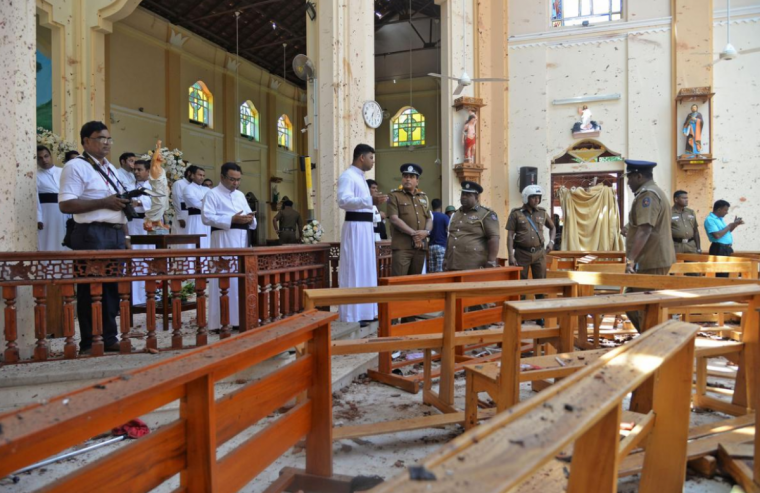Sri Lanka bombers were young and well-educated

Details began to emerge in Sri Lanka on Wednesday of a band of nine, well-educated Islamist suicide bombers, including a woman, from well-to-do families who slaughtered 359 people in Easter Sunday bomb attacks.
The Islamic State militant group claimed responsibility for the coordinated attacks on three churches and four hotels. If that connection is confirmed, the attacks looks likely to be the deadliest ever linked to the group.
Both the Sri Lankan government and the United States said the scale and sophistication of the coordinated bombings suggested the involvement of an external group such as Islamic State.
The Islamist group released a video late on Tuesday through its AMAQ news agency, showing eight men, all but one with their faces covered, standing under a black Islamic State flag, declaring loyalty to its leader, Abu Bakr Al-Baghdadi.
The one man in the video with his face uncovered was Mohamed Zahran, a Sri Lankan preacher known for militant views.
While the video showed eight men, Sri Lanka's junior defence minister, Ruwan Wijewardene, said there were nine suicide bombers. Eight had been identified and one of them was a woman, he said.
"Most of the bombers are well-educated, come from economically strong families. Some of them went abroad for studies," Wijewardene told a news conference.
"One of them we know went to the UK, then went to Australia for a law degree. Foreign partners, including the UK, are helping us with those investigations."
Two of the bombers were brothers, sons of a wealthy spice trader and pillar of the business community, a source close to the family said.
Intelligence officials and Prime Minister Ranil Wickremesinghe believe that Zahran, a Tamil-speaking preacher from the east of the Indian Ocean island country, may have been the mastermind.
He was well-known for his militant views and fiery Facebook posts, according to Muslim leaders and a Sri Lankan intelligence report issued earlier and seen by Reuters.
The government suspects two Sri Lankan Islamist groups - the National Thawheed Jama'ut, of which Zahran was believed to have been a member, and Jammiyathul Millathu Ibrahim - were responsible, with outside help.











